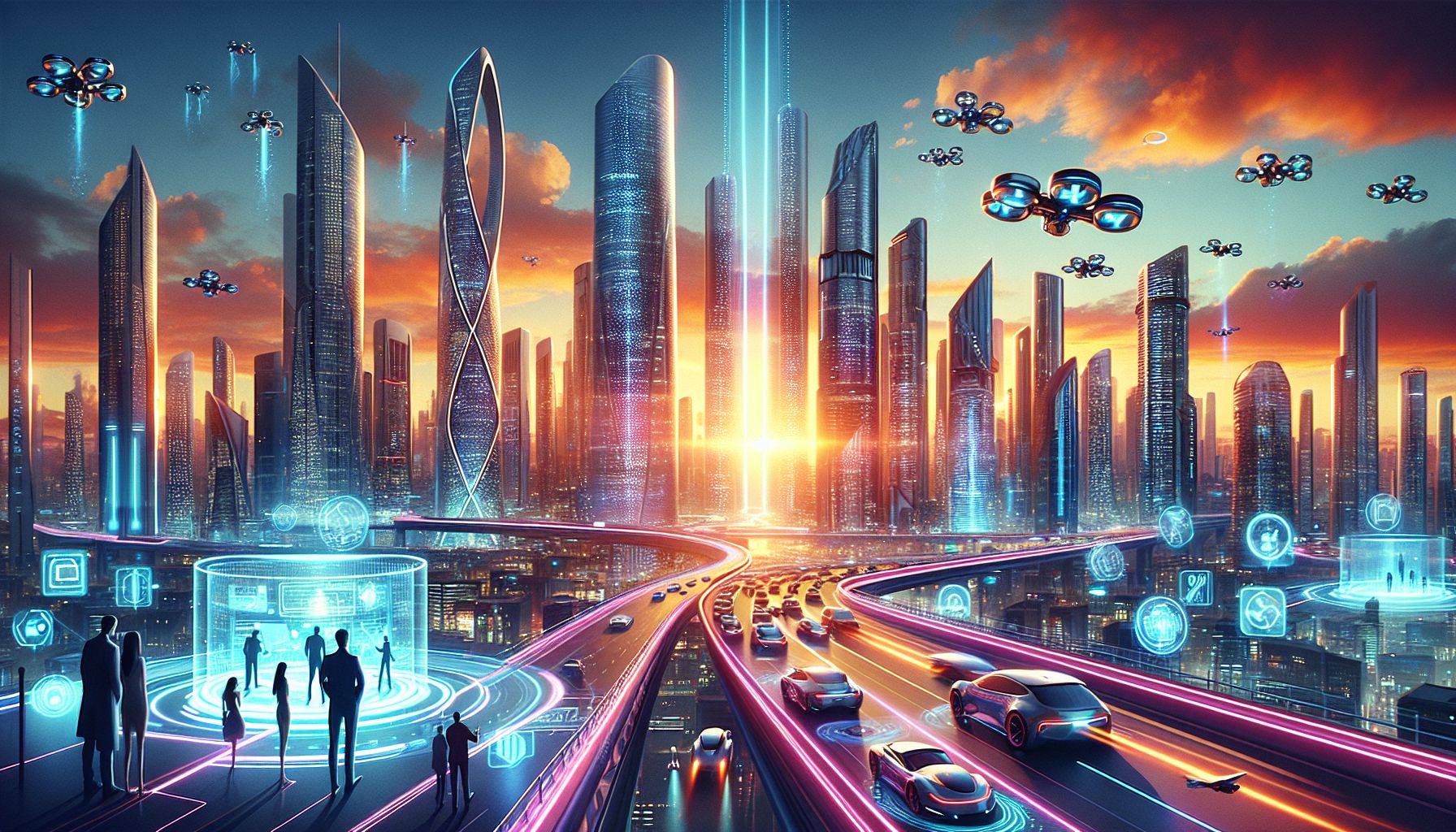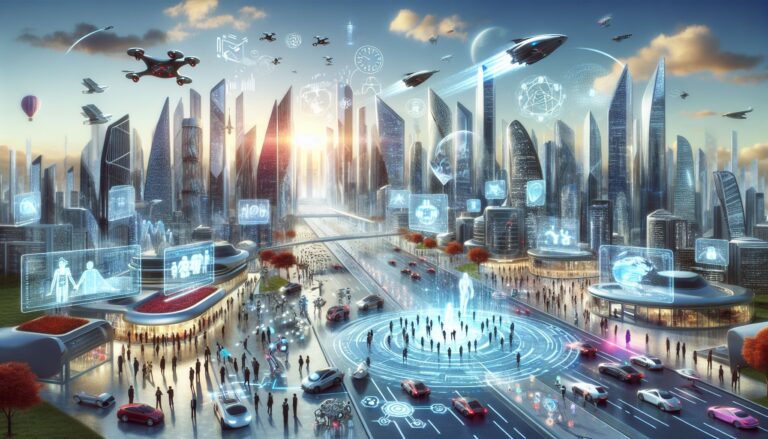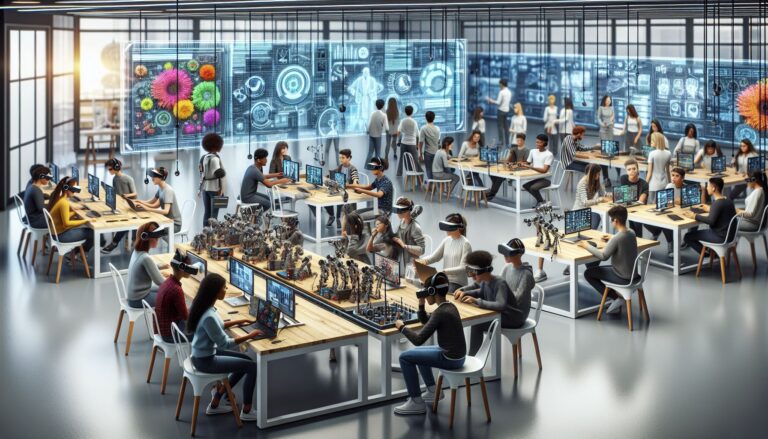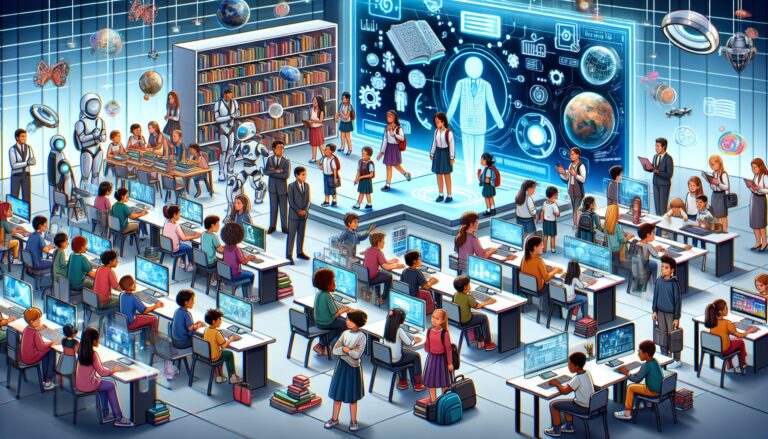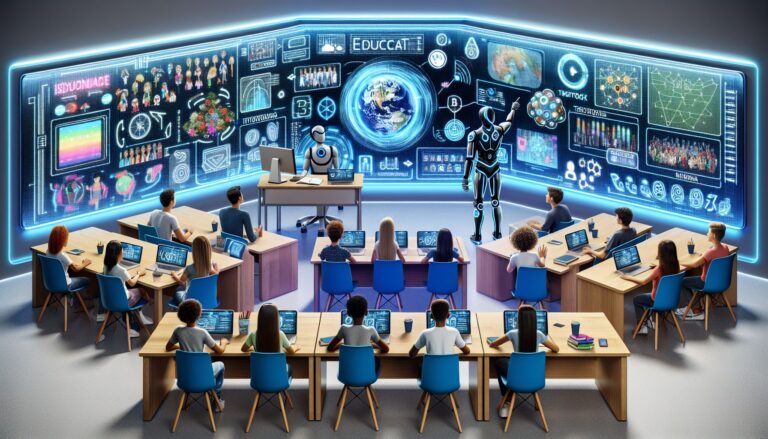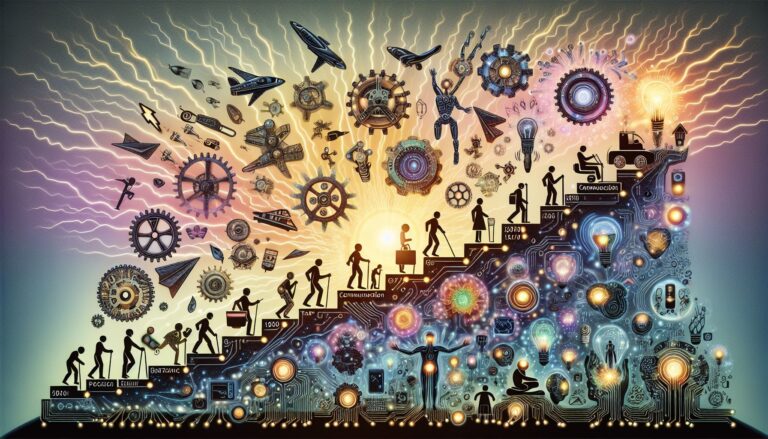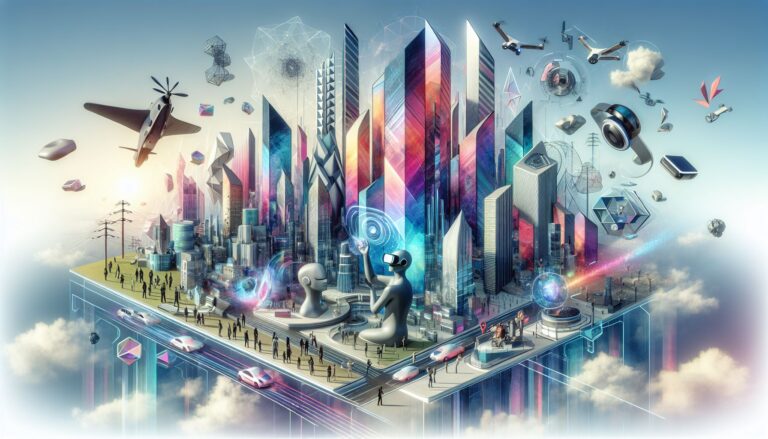In an age where the word ‘revolutionary’ has become commonplace, changes in the realm of technology consistently push the boundaries of what we consider possible. This relentless tide of innovation is not just altering the devices in our pockets; it’s reshaping our very society. As we stand on the cusp of a new era, peering into the horizon of technological advancements, we see a future both exciting and unpredictable, where technology is the map and compass directing our journey.
 Our world has witnessed a metamorphosis, with traditional learning environments undergoing a profound transformation. The classroom, once limited by physical walls and textbook pages, is now an expansive digital ecosystem. This reimagining of educational spaces is emblematic of a broader trend: the infusion of technology into every crevice of our lives. It’s a journey that begins with a single step — recognizing the innovations poised to write the next chapters of the human story.
Our world has witnessed a metamorphosis, with traditional learning environments undergoing a profound transformation. The classroom, once limited by physical walls and textbook pages, is now an expansive digital ecosystem. This reimagining of educational spaces is emblematic of a broader trend: the infusion of technology into every crevice of our lives. It’s a journey that begins with a single step — recognizing the innovations poised to write the next chapters of the human story.
AI, once a sci-fi fantasy, is today’s reality, interwoven into the fabric of our everyday lives. From powering personalized learning platforms that adapt to individual student needs, to driving autonomous vehicles, Artificial Intelligence is the engine of change. Its tendrils extend into healthcare, where AI algorithms diagnose diseases with superhuman accuracy, and into the financial sector, where it uncovers patterns within oceans of data to inform smarter investments. The implications are profound, setting the stage for a future where human and machine intelligence merge in unforeseen ways.
Blockchain technology, meanwhile, threatens to upheave traditional systems of trust and transaction. Immutable ledgers and decentralized finance are not just buzzwords; they are blueprints for a world where transparency triumphs and middlemen are rendered obsolete. As these technologies mature, we will witness shifts in power dynamics, with individuals reclaiming control over their data and assets. The ripple effect of such advancements promises to reconfigure industries, economies, and governance.
Equally transformative is the Internet of Things (IoT), where everyday objects gain the power of communication, creating a symphony of interconnected devices. From smart homes that anticipate our needs to smart cities that optimize energy consumption and traffic flow, IoT is the quiet conqueror, invisibly and silently enhancing efficiency and quality of life. As billions of devices begin to chat amongst themselves, they will generate a data deluge, harnessed to further refine and personalize the human experience.
But with great innovation comes great challenges. As we hurtle toward a tech-infused tomorrow, questions of ethics, privacy, and inequality arise. How do we navigate the moral quandaries posed by AI? Can we guard against the dark side of omnipresent connectivity? The answers require thoughtful discourse, collaborative problem-solving, and perhaps most crucially, an adaptable, educated public—armed not with fear, but with understanding and respect for the tools that will shape their future.
In retrospection, the lineage of technological innovations paints a picture of progress and empowerment. While these advancements promise to better our lives, the true measure of success will be their inclusion and accessibility. A future steered by technology could usher in a new Renaissance of creativity and productivity, but only if it is rooted in the principles of equity and sustainability.
As the digital dawn breaks, let’s embrace the promise of technology with the caution it necessitates, and the optimism it deserves. Each innovation, a thread in the tapestry of human evolution, invites us to ponder not just the world it will create, but the society we aspire to become. It is in this reflection and the actions it inspires that our collective future will unfold, a masterpiece crafted by the union of human curiosity and the tools it spawns.

